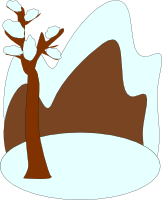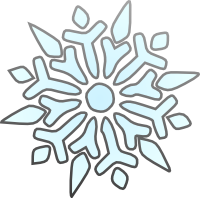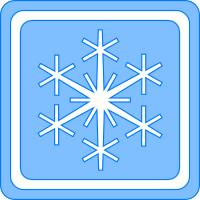Associations to the word «Winters»
Noun
- Warmer
- Autumn
- Tundra
- Snowfall
- Snow
- Climate
- Flock
- Oceanic
- Spring
- Tropic
- Encampment
- Latitude
- Sledge
- Greenland
- Skiing
- Spawning
- Inuit
- Elk
- Fur
- Forge
- Skier
- Steppe
- Freezing
- Monsoon
- Goose
- Precipitation
- Skating
- Summer
- Frost
- Migrant
- Rink
- Whales
- Trapper
- Wonderland
- Blizzard
- Freeze
- Migration
- Rainfall
- Greenhouse
- Winter
- Ski
- Temperature
- Plumage
- Herd
- Cooler
- Feeding
- Hemisphere
- Winters
- Ice
- Cold
- Weather
- Turnip
- Carnival
Adjective
Pictures for the word «Winters»
Wiktionary
WINTER, noun. Traditionally the fourth of the four seasons, typically regarded as being from December 23 to March 20 in continental regions of the Northern Hemisphere or the months of June, July and August in the Southern Hemisphere. It is the time when the sun is lowest in the sky, resulting in short days, and the time of year with the lowest atmospheric temperatures for the region.
WINTER, noun. (figuratively) The period of decay, old age, death, or the like.
WINTER, verb. (intransitive) To spend the winter (in a particular place).
WINTER, verb. (transitive) To store something (for instance animals) somewhere over winter to protect it from cold.
WINTER, proper noun. A surname. (A common Germanic one.)
WINTER, proper noun. A town and village in Wisconsin.
WINTER ACONITE, noun. A plant (Eranthis hyemalis) allied to the aconites.
WINTER ACONITES, noun. Plural of winter aconite
WINTER BREAK, noun. A period of time off during the winter, especially over the Christmas period.
WINTER CHERRIES, noun. Plural of winter cherry
WINTER CHERRY, noun. Bladder cherry or Chinese lantern (Physalis alkekengi)
WINTER CHERRY, noun. Other species of Physalis
WINTER CHERRY, noun. Solanum pseudocapsicum (Jerusalem cherry)
WINTER CHERRY, noun. Withania somnifera (ashwagandha)
WINTER COAT, noun. A warm coat, often an overcoat, fit to be worn in winter
WINTER COAT, noun. (zoology) An animal's seasonal appearance in winter, notably thicker and/or otherwise camouflaged plumage or fur after (often autumnal) moulting
WINTER DEPRESSION, noun. (pathology) winter seasonal affective disorder
WINTER FALLOW, noun. Land that is kept fallow during the winter.
WINTER FINDING, proper noun. (paganism) A festival celebrated in Heathenry which marks the beginning of fall, held on the autumn equinox.
WINTER GRAPE, noun. Vitis vulpina, the fox grape
WINTER GRAPE, noun. Vitis cinerea
WINTER KILL, noun. Alternative form of winterkill
WINTER MELON, noun. A vine of the genus Benincasa cultivated throughout Asia.
WINTER MELON, noun. A green, fuzzy melon fruit with sweet white flesh, which grows on this vine.
WINTER MELONS, noun. Plural of winter melon
WINTER OLYMPIAN, noun. Someone who competes in the Winter Olympics
WINTER OLYMPICS, proper noun. Alternative name of the Olympic Winter Games
WINTER RAT, noun. (idiomatic) (colloquial) (US) An old, unattractive automobile, purchased for little money, to be driven during brutal Great Lakes winters while the owner's "good" car remains garaged and protected from corrosive road salt for the season.
WINTER ROAD, noun. A type of temporary road that is only accessible in continuous long-term very sub-freezing weather, typically only open during deep winter, across terrain that in warmer weather is composed of mud, muskeg, bogs, swamp, marsh, open water, and similar.
WINTER ROAD, noun. A trail that is only open in winter
WINTER ROADS, noun. Plural of winter road
WINTER SALAMI, noun. A traditional Hungarian salami made from Mangalica pork and spices.
WINTER SALAMIS, noun. Plural of winter salami
WINTER SOLSTICE, noun. (astronomy) The moment when the Earth is in that point of its orbit where the northern or southern hemisphere is most inclined away from the sun.
WINTER SOLSTICES, noun. Plural of winter solstice
WINTER SPORT, noun. Any sport, originally only played during the winter, that is played on ice or snow.
WINTER SQUASH, noun. Any of numerous cultivars of four species of summer growing vegetable of the genus Cucurbita
WINTER SQUASH, noun. Cucurbita maxima
WINTER SQUASH, noun. Cucurbita argyrosperma
WINTER SQUASH, noun. Cucurbita moschata
WINTER SQUASH, noun. Cucurbita pepo
WINTER SQUASHES, noun. Plural of winter squash
WINTER STORM, noun. A meteorological event in which the dominant varieties of precipitation are forms that only occur at cold temperatures, such as snow or sleet, or a rainstorm in which ground temperatures are cold enough to allow ice to form.
WINTER SUN, noun. (UK) (Ireland) (travel) the off-season holiday market, typically to destinations in North Africa and Southern Europe.
WINTER SUN, noun. Used other than as an idiom. sunshine during the winter season.
WINTER SWIMMER, noun. One who participates in winter swimming
WINTER SWIMMERS, noun. Plural of winter swimmer
WINTER TRIANGLE, proper noun. [the W- T-] (asterism) A bright asterism of the northern winter sky. Its corners are the three 1st-magnitude stars Betelgeuse (α Ori), Procyon (α CMi), and Sirius (α CMa).
WINTER TRIATHLON, noun. A multisport composed of a three-sport three-leg race involving snowshoeing, ice skating, cross-country skiing
WINTER TRIATHLONS, noun. Plural of winter triathlon
WINTER VOMITING DISEASE, noun. The gastroenteritic illness caused by noroviruses.
WINTER WAR, proper noun. A war between Finland and the Soviet Union in 1939-40, as a result of which Finland lost 11% of its territory and the Soviet Union was expelled from the League of Nations.
WINTER WARMER, noun. (colloquial) A traditional English strong ale that is brewed in the winter months. It is usually quite dark, but not as dark as a stout, and may be spiced.
WINTER WARMER, noun. (colloquial) Any food or drink that gives a feeling of warmth in the winter months.
WINTER WARMERS, noun. Plural of winter warmer
WINTER WHEAT, noun. A type of wheat that is planted in the autumn to germinate and develop into young plants that remain in the vegetative phase during the winter and resume growth in early spring.
WINTER WORM, noun. A fungus, Cordyceps sinensis, used in traditional Chinese medicine
WINTER WREN, noun. A bird of the species Troglodytes hiemalis, of the coniferous forests of the cooler parts of North America, from British Columbia to the Atlantic coast.
WINTER WREN, noun. Any of what are now consider separate species, the Eurasian wren (Troglodytes troglodytes) and the Pacific wren (Troglodytes pacificus)
Dictionary definition
WINTER, noun. The coldest season of the year; in the northern hemisphere it extends from the winter solstice to the vernal equinox.
WINTER, verb. Spend the winter; "We wintered on the Riviera"; "Shackleton's men overwintered on Elephant Island".
Wise words
Don't you know this, that words are doctors to a diseased
temperment?








.png)
.png)